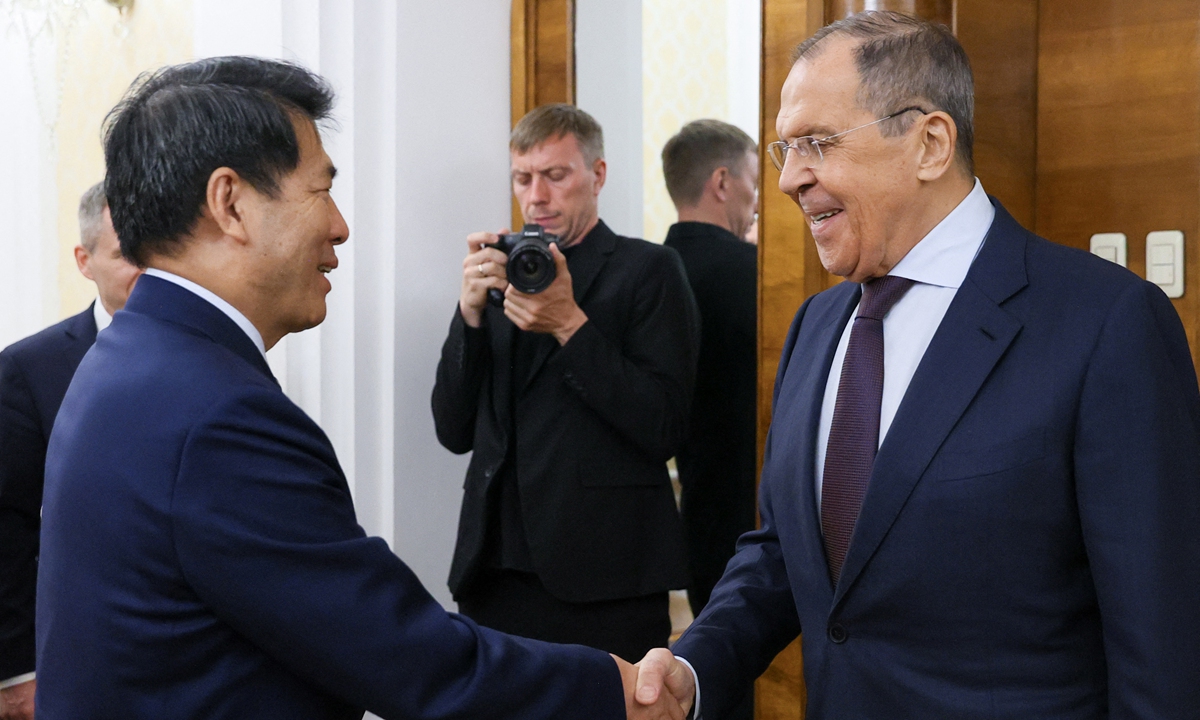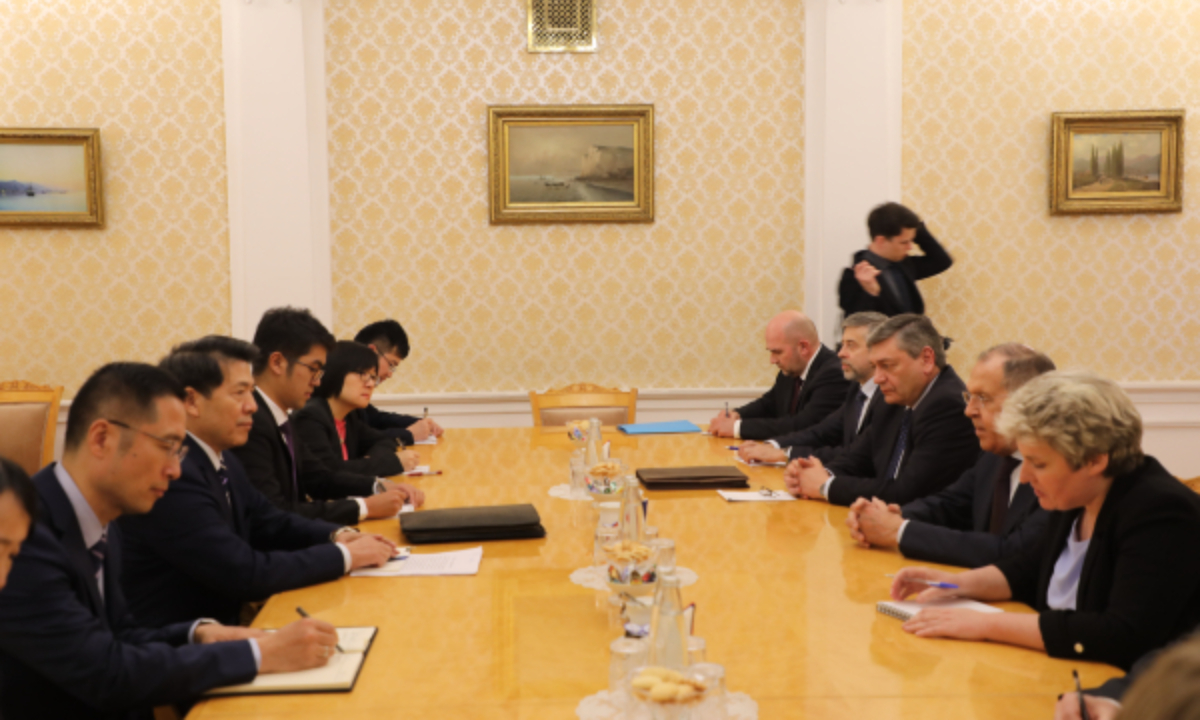
Special Representative of the Chinese Government on Eurasian Affairs Li Hui (left) meets with Russian Foreign Minister Sergei Lavrov in Moscow, on May 26, 2023. Photo: AFP
During his last stop of European tour in Russia, China's special envoy Li Hui met with Russian senior officials and they exchanged opinions on the China-Russia relationship and discussed a political solution to the Ukraine crisis, the Chinese Foreign Ministry announced on Saturday.
Viewed as China's first practical diplomatic peacemaking efforts to solve the Ukraine crisis, the trip took him to Ukraine, Poland, France, the EU headquarter in Belgium, Germany and Russia starting from May 15, during which Li reiterated China's core stance on the Ukraine crisis and called for joint efforts from relevant parties to enhance communication for a political settlement of the crisis.
The main purpose of Li's trip is to collect and exchange information, understand the concerns of relevant parties and draw a range for future cooperation. In the future, China will continue to try and unite more nations that seek peace and promote dialogue via expanded communication mechanisms, observers said.

Photo: Ministry of Foreign Affairs
Li Hui, China's Special Representative for Eurasian Affairs held talks with Russian Foreign Minister Sergei Lavrov, Russian Deputy Foreign Minister Mikhail Galuzin and Russian Deputy Foreign Minister Andrei Rudenko in Moscow on Friday, the Chinese Foreign Ministry said in a statement.
Both sides hailed Chinese President Xi Jinping's visit to Russia in March, saying that the visit further deepened political mutual trust, consolidated the political foundation and public opinion foundation of the two peoples, injecting new and strong impetus for bilateral all-round practical cooperation, the ministry said.
Both sides pledged to implement important areas of consensus reached by the two heads of state, further strengthen bilateral and multilateral strategic coordination, as well as exchanges and cooperation in various fields, aiming to constantly continue enriching the connotation of China-Russia relations in the new era, according to the ministry.
On the Ukraine crisis, Li reiterated that China always adheres to the purposes and principles of the UN Charter, maintains an objective and fair stance, and actively promotes peace talks. China always stands on the side of peace, dialogue and the right side of history, he said.
On the basis of the document stating China's position on the political settlement of Ukraine crisis, Li said China will strengthen exchange and dialogue with all parties including Russia to make concrete efforts on the political settlement of the crisis.
The Russian side lauded China's practical efforts to promote a peaceful settlement of the Ukraine crisis and expressed their belief that China's relevant principles and stance are conducive to a peaceful settlement of the crisis. The Russian side expressed their commitment to the direction of political settlement of the crisis and enhancing communication and coordination with China.
"It is China's first step and is a very necessary step as China always stresses reasonable security concerns of all relevant parties," Cui Hongjian, director of the Department of European Studies at the China Institute of International Studies, told the Global Times on Saturday.
Cui believed that as more countries in the international community show willingness to promote peace talks, China will continue to make more efforts to unite those forces to help promote a peaceful solution to the Ukraine crisis based on the achievements of Li's trip.
On Thursday in Brussels, Li met with Enrique Mora, the European Union's deputy secretary general for political affairs, and Frederic Bernard, Head of Cabinet of President of European Council Charles Michel.
According to a statement released by the EU after Li met with Mora, the European bloc called on China to push Russia to "unconditionally withdraw all forces and military equipment from the entire territory of Ukraine within its internationally recognized borders."
Divergence over territory is currently the biggest obstacle that prevents Russia and Ukraine from sitting on the same table to talk. But as to this issue, China is not holding any pre-set stance, Cui pointed out.
Cui noted that by calling on China to push Russia, the European bloc is trying to press China to play a role that they want China to play. They think Russia should take the main responsibility for the crisis. But China will reserve its own judgement and decision-making power. "We are not to serve as a mediator between Russian and Ukraine, but trying to discuss with relevant parties to work out a reasonable and sustainable settlement to the issue," said Cui.
The essence of promoting peace talks is to persuade both parties, and even multiple parties involved in the conflict, to engage in negotiations. The essence of the Russia-Ukraine conflict is a confrontation between the US and Russia, and it is meaningless and unrealistic to only persuade one side, analysts noted, urging the Europe to make more efforts to promote communication rather than following the US to further exacerbate the situation.





